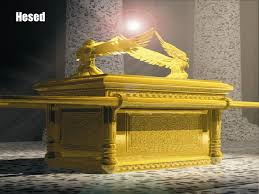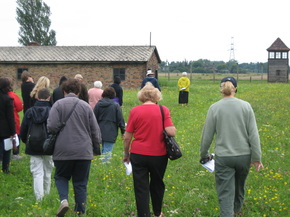
We are all beggars at the Throne of Grace. Some know they are beggars, and some do not. The Pharisee in today’s Gospel claims he does not need God’s help while the Publican begs as a drowning man begs for a lifeline. The public sinner goes home justified, even though he does not feel holy, because he knew, and he confessed, his complete dependence on God. Mother Teresa said: “I don’t think there is anyone who needs God’s help and grace as much as I do. … I rely on Him twenty-four hours a day. If the day had even more hours, then I would need His help and grace during those as well.”
A beggar in Mexico City
Have you ever had to beg? I am a white American male with a several college degrees and I don’t have to beg anything from anybody. That’s the American dream, after all, to have everything I want and need, and to depend on nobody. But once I had to beg. During my seminary years, I spent a summer in Mexico studying Spanish. At the end of the course I had five dollars left and was checking in for my flight home. The lady at the counter told me I needed to pay a 12-dollar airport tax. “But nobody told me about any tax; I have only five dollars!” I told her. “You’re an American,” she said. “You can beg from your fellow Americans here.” I looked around at the stony-faced travelers behind me. After a few minutes I got the courage to walk up to an American lady and stammer, “excuse me, I need 7 dollars to pay the airport tax. Could you help me?” I’ll never forget how hard it was to ask that question, to put myself at the mercy of a stranger. The American lady was embarrassed and mumbled something about not having money for that kind of thing, but a Mexican lady behind her smiled at me kindly and put a $20 bill in my hand.
The Mercy Seat
My humility was sincere, and my gratitude to the Mexican lady was deeply heartfelt. I was helpless and alone, and a stranger helped me. It’s a very good thing to have to beg, and to have a personal experience of God’s providence. Poor people, simple people and often very rich people who have been through some personal affliction, will often say “God is so good,” but that sense of gratitude becomes personal only when we have to beg for help and receive it from the hand of God. In the Gospel, the publican approaches the temple, the throne of grace, the mercy seat, and he begs. Yahweh had directed the Levites to place the Seat of Mercy in the very center of the Jerusalem temple, within the holy of holies, behind the veil. It was the solid gold cover over the Ark of the Covenant, itself covered by the wings of two hammered gold cherubim. The high priest approached it only once a year to sprinkle the blood of atonement, to beg mercy from God for his sins and the sins of the people. In this Catholic church, the golden tabernacle sits in the center of our sanctuary, and it is from there that God bestows mercy upon every man who kneels before him.
Prayer is always essentially a plea for mercy, for healing reconciliation with God and neighbor. We beg him to lift us from our loneliness and shame, our frustration and anger. It must come from the heart to be heard. Notice that the Pharisee, who thinks he does not need mercy, prays to himself: he is speaking about himself to himself. Why would God listen to a speech that is not even directed to him? The publican, on the other hand, does not lift his eyes. He knows that he is not worthy to even be near God. But, in fact, God has established a mercy seat in the temple for all people; he wants us to come to him, as suppliants trusting in his loving mercy.
Not Worthy but Graced
In the Mass, the priest turns to the people and asks them to pray: orate, fratres, ut meum ac vestrum sacrificium acceptabile fiat apud Deum…. “pray, brethren, that this sacrifice be acceptable to God.” And the people, through the server, pray: Suscipiat…. “Receive, O Lord, this sacrifice….” We pray this prayer with downcast eyes, with humble hearts, knowing that “non sum dignus,” that we are not worthy, as we will pray thrice just before receiving the Holy Sacrament. The priest uses the word quesamus in almost every prayer: “we beg, we beseech.” You should know the meaning of that word, and use it yourself: “I beg you, dear and sovereign Lord, to help me, who am so frail, so prone to sin.” This word “beseech” was omitted in the English translation for many years, and has thankfully been restored. Let us know that we are not worthy to receive God’s favor, and yet he has commanded us to beseech him, to beg him, for mercy.
So let us pray: only in the Holy Spirit can anyone even begin to pray, as St. Paul tells us in the Epistle. Jesus is Lord, and we have nothing to fear if we know our need and his providence. We have everything to fear if we think we do not need him. Let us imitate Our Lady, who came to her own son at Cana not commanding, but asking, begging Him to help. He graciously responded, with abundance, to her heartfelt humility and trust.



 RSS Feed
RSS Feed